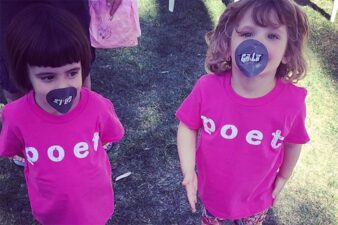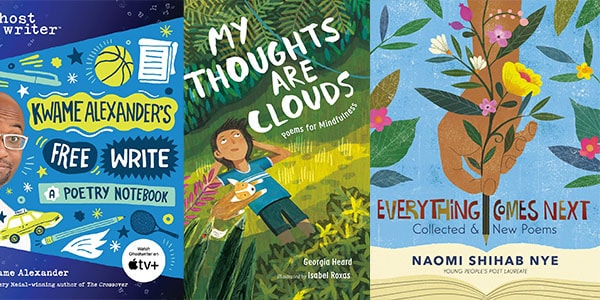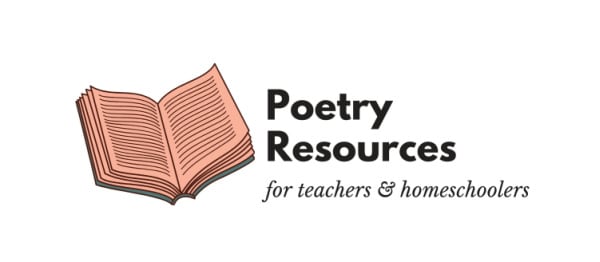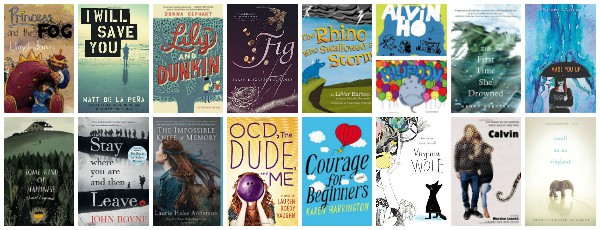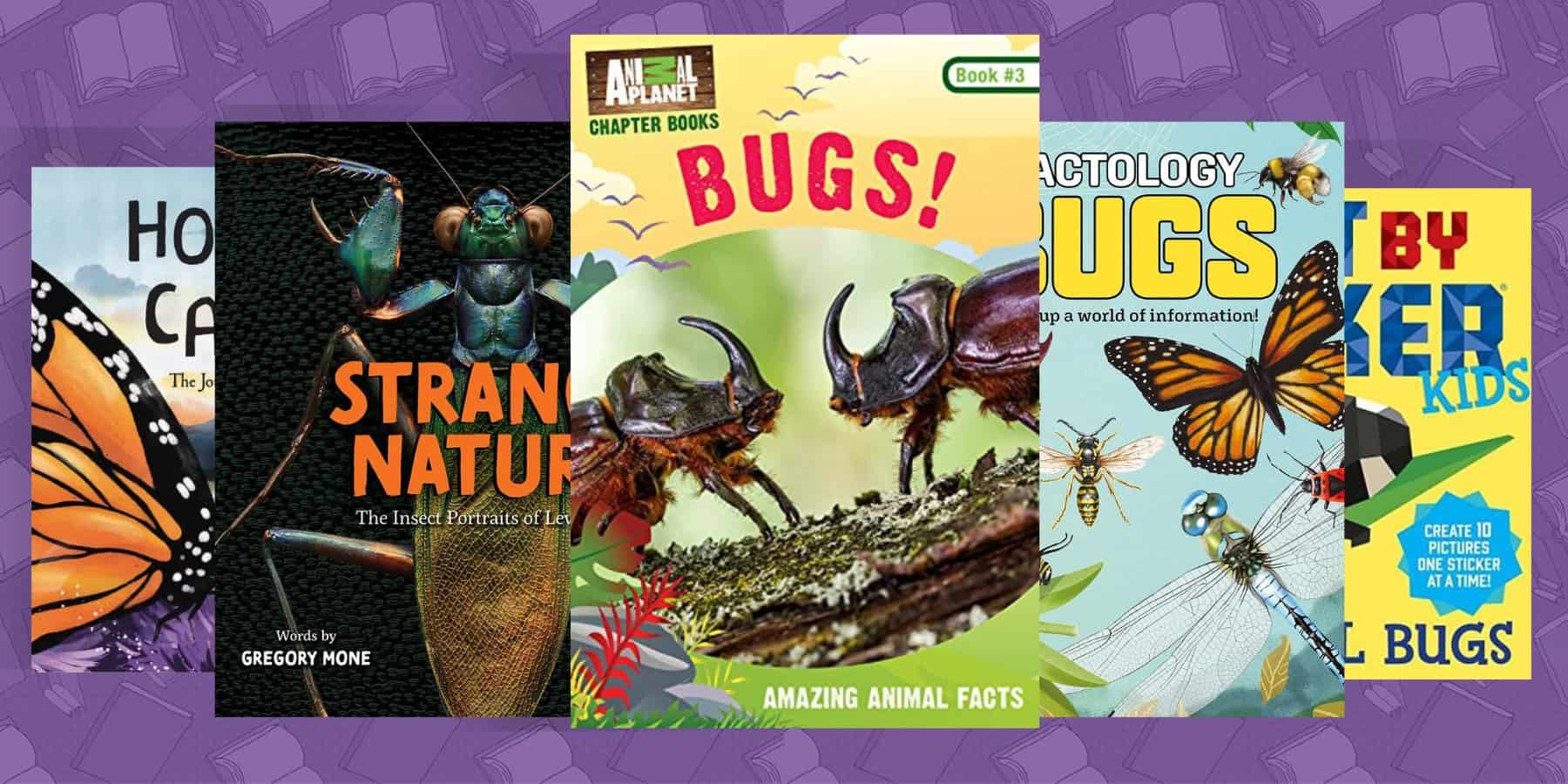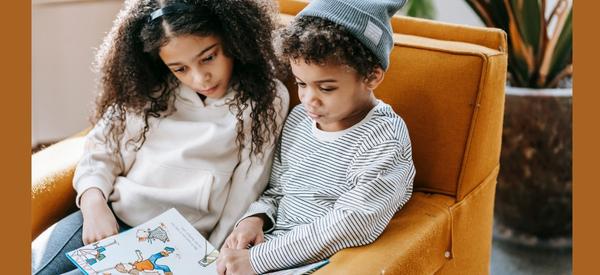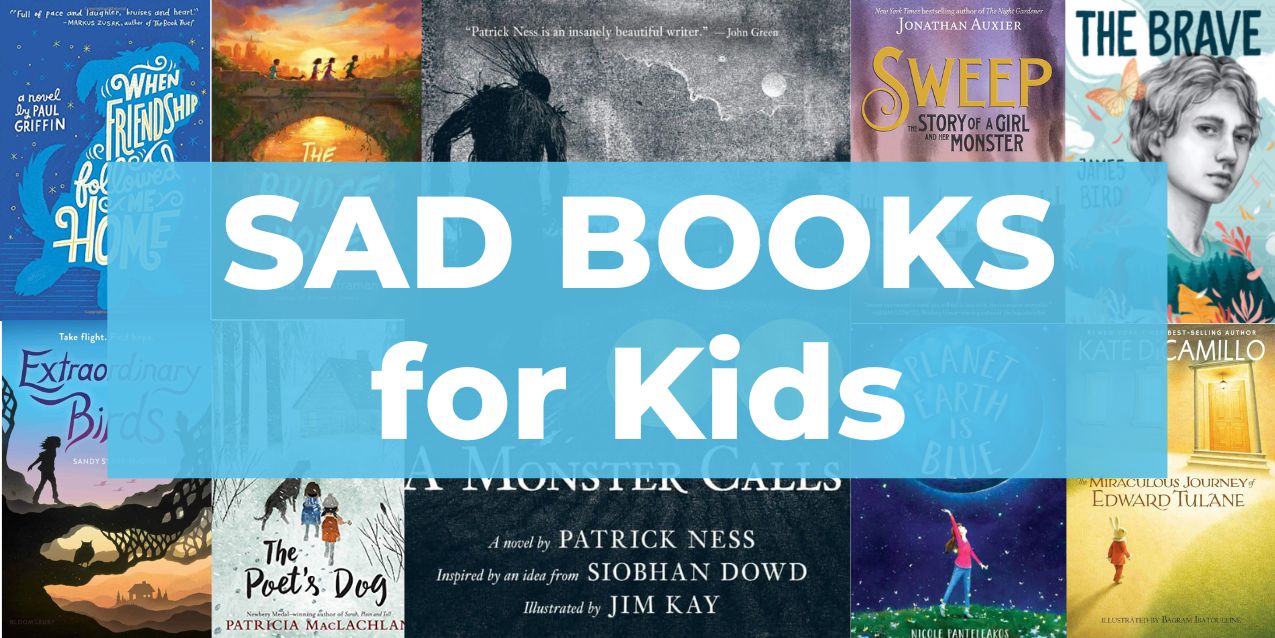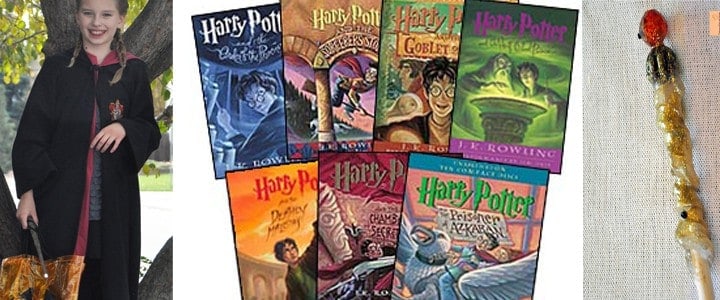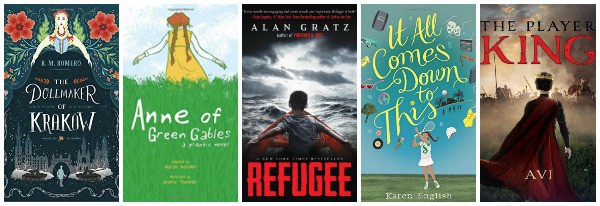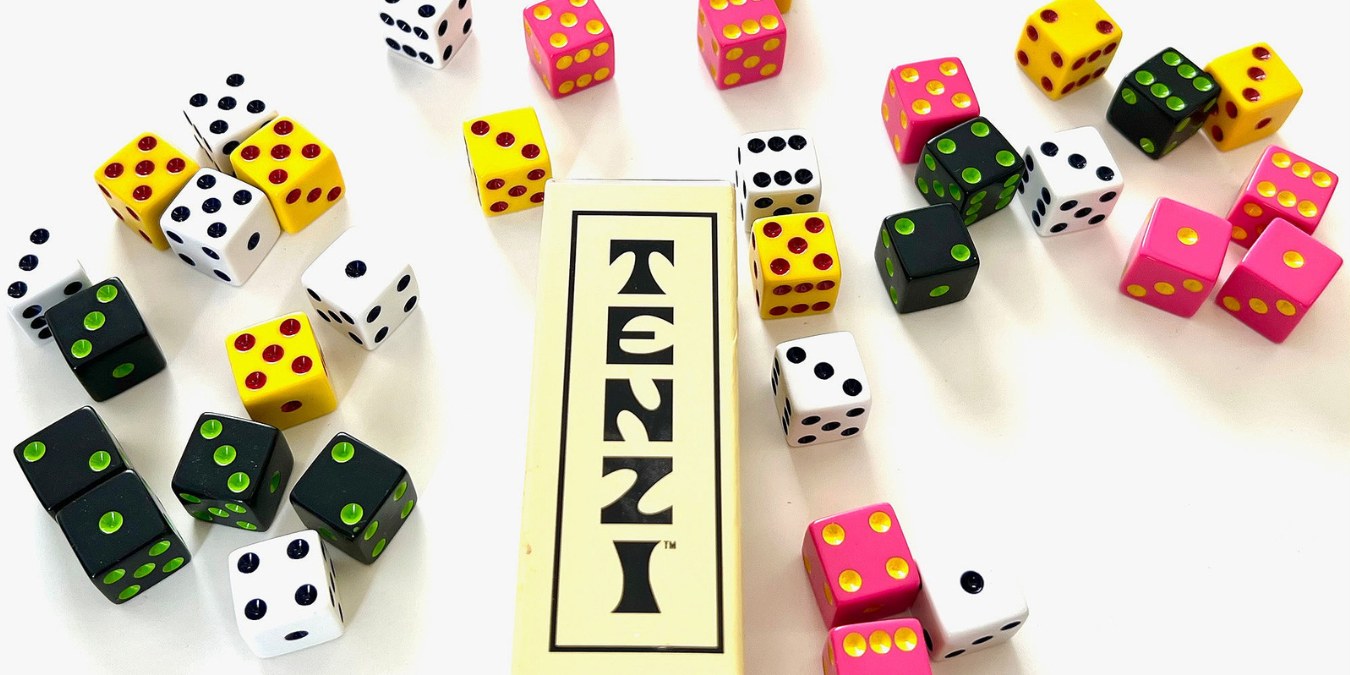Get Lit Spoken Word Poetry Inspires Teens to Find Their Voices
This post may contain affiliate links.
Get Lit is an LA.-based initiative created by Diane Luby Lane that uses poetry, reading, writing, and spoken word, to inspire teens to reengage with their lives and education. The Get Lit Rising book is profound, sharing the stories of 19 individual teen poets, the classic poem that inspired them, and their response poems. The teens in this book have found their voices.
Founder, Diane Luby Lane explains the draw of poetry, “Poetry is a language of the soul. It is the way we express the things that can’t be said.”
Get Lit Spoken Word Poetry Inspires Teens to Find Their Voices
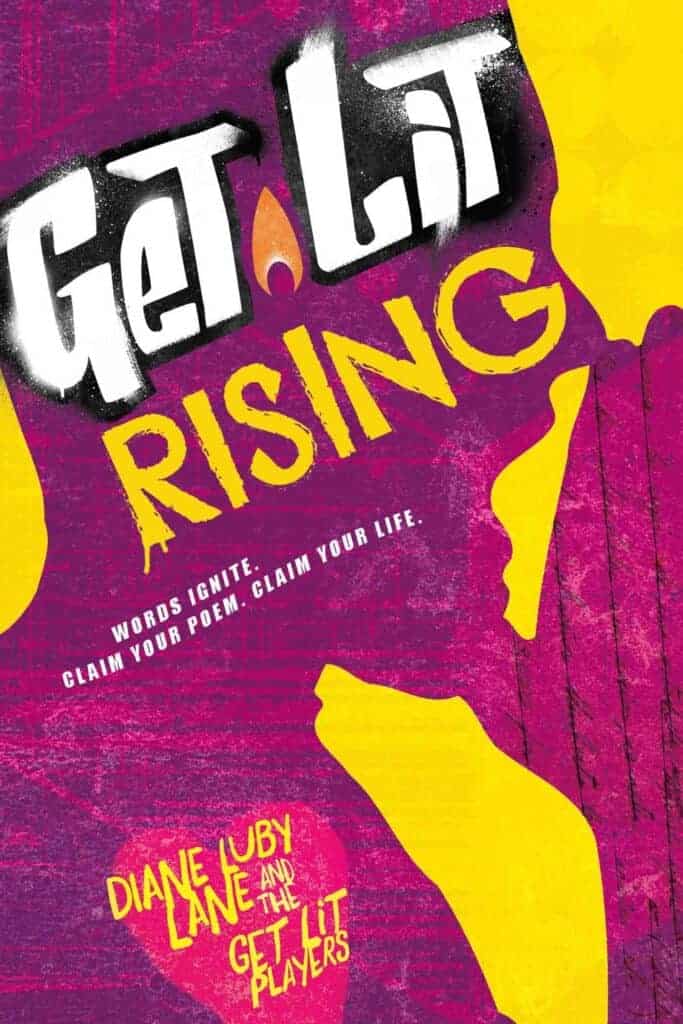 The purpose of Get Lit is to increase teen literacy and cultivate kids to inspire social consciousness in diverse communities and for kids to engage in education and life.
The purpose of Get Lit is to increase teen literacy and cultivate kids to inspire social consciousness in diverse communities and for kids to engage in education and life.
And here’s the thing: IT WORKS!
Get Lit is changing lives. The spoken word Get Lit Players are going to college, most with scholarships, their school attendance has improved, and they show an increase in school engagement and academic excellence.
Can you tell how excited I am to share this with you?! Get Lit Rising made me want to start this spoken word poetry program somewhere, right now, and be part of this awakening, this incredible movement that helps kids unlock their voices in a powerful way. Maybe you’ll feel the same way, too.
Connect with a Classic Poem
Get Lit introduces teens to the masters of poetry. It helps teen find the meaning in poems, meaning that you and I both know sometimes can not be captured by anything else but a poem.
The motto is: “Claim Your Poem, Claim Your Life.”
Any great poetry is defined as a classic or a master. Here are just a few that the teens in the book used for their classic poems. When you want to find your own poem, the book includes 200 poem ideas to get you started.
“Anthem” by Leonard Cohen
“Mi Problema” by Michele Serros
“The Negro Mother” by Langston Hughes
“A Smile to Remember” by Charles Bukowski
“Tonight in Yoga” by Sierra DeMulder
“Leaves of Grass” by Walt Whitman
“Her Kind” by Anne Sexton
“One Art” by Elizabeth Bisho
“Barbie Doll” by Marge Piercy
“Touched by an Angel” by Maya Angelou
“Memorial” by Francisco X. Alarcon
“Shout Out” by Sekou Sundiata
Write a Response Poem
After students have found their classic poem, they write a response poem.
Here’s why I couldn’t put this book down. Each person shares an essay about their life, which is really interesting and gives you a glimpse of their point of view. The kids share their classic poem. And then you’ll read their response poems. Talk about depth! These poems deal with body image, parents, pain, bullying, food, rape, love, growing up, race, . . . things that really matter; things that the poets are working out or that need to be worked out by society.
Jessica Romoff
Reflect and Write
Now readers are tasked with going deeper and connecting to their own lives. First, the book prompts readers to LOOK IN (reflect) with questions like “Have you ever felt shut out or cut off by friends?”
Next, readers are asked to SHOUT OUT (write). “Tell the story of a time you fought with a parent.”
The final part of each Get Lit poet’s section is to claim your classic by exploring the ten poetry suggestions that are related to the theme. I loved looking these up and was pleasantly surprised to find many of them on the internet. (Copyright permission makes some poems not available except in books.)
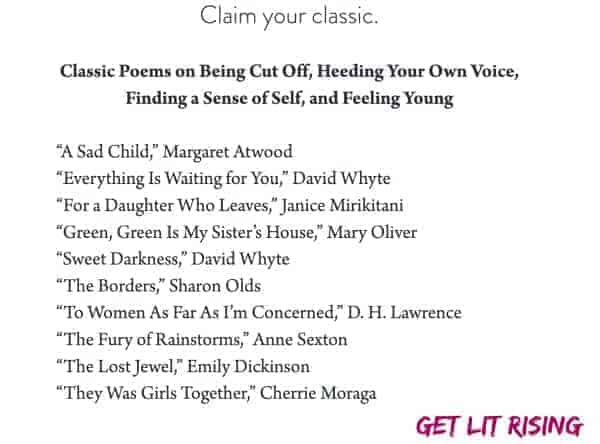
Spoken Word Poetry
A big piece of all of this is the performance of spoken word poetry. All of the kids in this book competed in local, regional, and national poetry festivals (sometimes called slams) and were selected to be in the Get Lit Players group. They, along with other kids involved with Get Lit program, must share their poems on stage in front of an audience.
The Get Lit Players featured in this book are a professional performance troupe made up entirely of teenagers from high schools in the L.A. area. They’ve performed with John Legend, Questlove, Gloria Steinem, and been invited to the White House, and they wrote the manifesto for Dove’s #choosebeautiful campaign. They even have an album you can find on iTunes.

Poetry is meant to be read out loud. Spoken word poetry takes an oral reading and turns it into something more. It’s an emotional, dramatic performance often with a strong beat. Have you seen it before?
Watch a Get Lit Player’s spoken word performance.
Watch 10 TED Talks spoken word poets here.
And if you feel emotional after watching, . . . then the poets have done their jobs.
Curriculum
The Get Lit curriculum is available to purchase here. It’s a way to show teens that their voices matter. Not only that, this gives them a voice.
You’ll most likely want to start your own poetry group like Get Lit after reading this book. Fortunately, the book gives suggestions for doing so at the end!!
For more information, visit their website here.
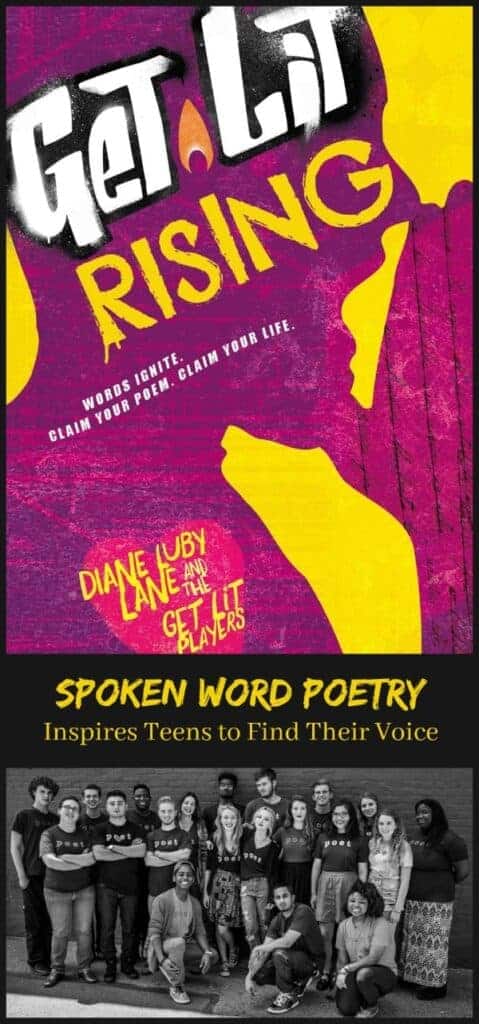
KEEP READING

